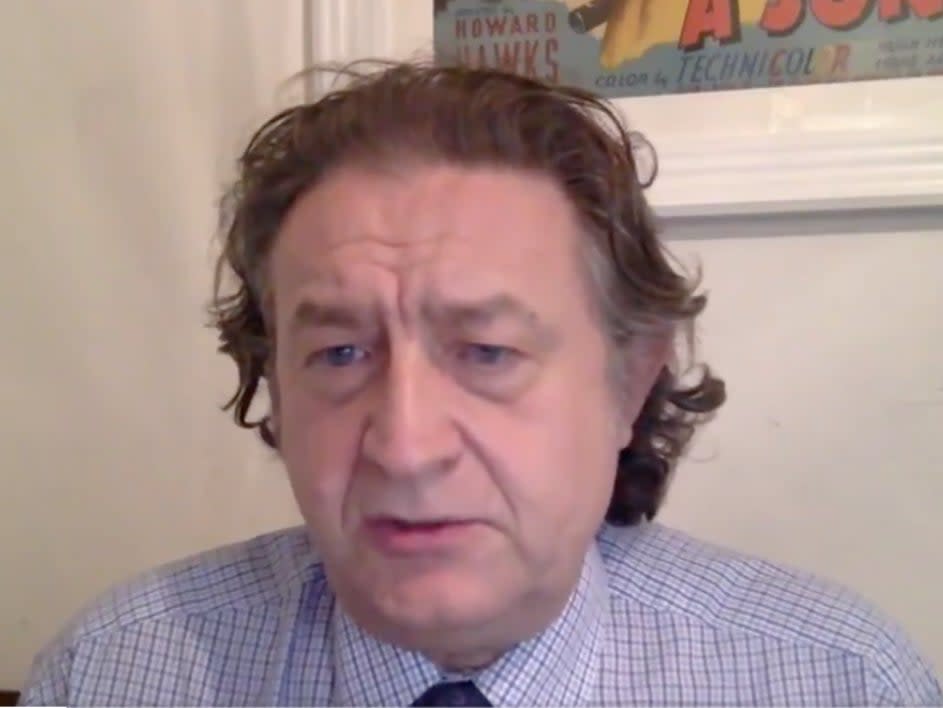Christmas relaxing of rules may lead to third coronavirus wave, Sage adviser warns

Relaxing coronavirus restrictions over the festive period could lead to a third wave of infections, a government scientific adviser has warned.
Professor Andrew Hayward, a member of the Government’s Scientific Advisory Group for Emergencies (Sage), said the government’s plan to allow three households to meet over several days during Christmas is “throwing fuel on the Covid fire”.
The UK government and devolved administrations agreed to a temporary easing of restrictions which will allow three households to form a bubble from 23 December to 27 December.
Prof Hayward told BBC2’s Newsnight: “I think it will definitely lead to increased transmission. It is likely to lead to a third wave of infection, with hospitals being overrun, and more unnecessary deaths.
“We are still in a country where we have got high levels of infection with Covid, particularly in young people. Bringing them together for hours, let alone days, with elderly relatives, I think, is a recipe for regret for many families.
“With the vaccine on the way, if we are not very careful over Christmas we are really in danger of snatching defeat from the jaws of victory on this one,” he added.
His grave warning comes as the British Medical Association (BMA) also cautioned that easing measures to reduce the spread of Covid-19 over Christmas will “almost certainly” lead to a rise in the infection rate.
Dr Chaand Nagpaul, BMA UK council chair, said: “There is a careful balance to be struck when weighing up the risks associated with Covid-19 and the understandable wish to see loved ones this Christmas.
“This virus does not discriminate against certain days of the year.
“Relaxing the rules on indoor mixing for a five-day period will almost certainly carry the risk of a rise in infection rate and possibly more hospitalisation and deaths, adding further pressure on the health service, doctors and NHS staff.”
Dr Nagpaul added that infection levels and hospitalisations in the UK were still “worryingly high”, and the daily death toll has been rising as the country grapples with a second wave of the virus.
“The priority now must be to support the public to adhere to stringent rules around physical distancing and infection control to drive down the infection rates further by Christmas,” he said.
“The lower the level of infection the less risk it will place for families to meet at Christmas.”
He said it was “absolutely vital” that people practice safety precautions if mixing with other households, such as ventilating rooms and limiting physical contact when masks are not worn.
Graham Medley, professor of infectious disease modelling at London School of Hygiene and Tropical Medicine, told BBC Radio 4’s Today programme: “This Christmas, it’s going to really be up to us as individuals and families to think about our risks are and how we’re going to manage them and mitigate them.
“I think it is inevitable that if a lot of people do take that risk, even if it’s a small risk, then it will end up with a lot of people in hospital and potentially having to take measures in January to lock down again.”
Asked what people can do to minimise the risk of passing the virus onto a vulnerable relative, Prof Medley said: “As much as possible, try and make sure that you isolate before you go to see somebody, try and think about the order in which you might see somebody, the amount of time you might stay with them – the idea of bubbles really only works if people are completely faithful to that bubble, so they don’t see people outside it.
“But in the end, the big thing is to weigh up the consequences of getting that risk wrong, if it goes badly wrong. There might only be a 1 in 100 chance of something going wrong and me infecting my mother, for example, but do I really want to take that risk in terms of what the outcome is for her?
“Likewise, I have grandchildren, do I really want to see them and potentially the risk to me? These are the very difficult things that people are going to have to think about.”
But Paul Hunter, professor of medicine at the University of East Anglia, said Christmas may be necessary “to make it through the rest of winter”.
“The issue is whether that increased risk is tolerable in relation to the benefits,” he said, adding that there will be some “downward pressure” on transmission levels due to schools being closed for Christmas break.
“Providing that the new tier system is better managed than in October, any increase in cases could be relatively short-lived.
“After Christmas, we will still have to live through a few more months of restrictions at least.
“Christmas, whether or not we celebrate the day as a religious festival, may be what we need to make it through the rest of winter,” he added.
Additional reporting by PA
Read More

 Yahoo Finance
Yahoo Finance 